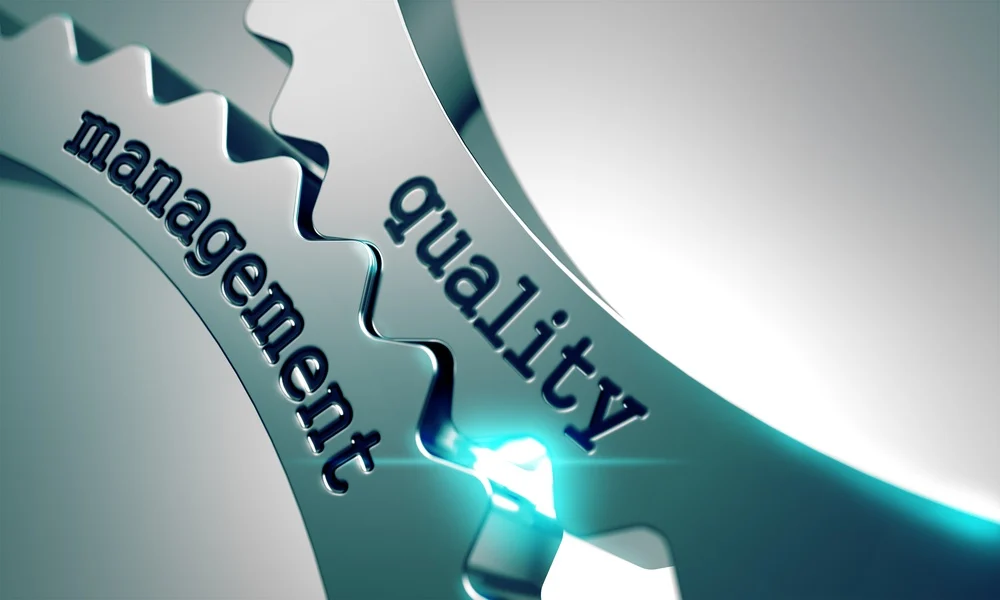ISO 9001 is a globally recognised standard for quality management systems (QMS). It provides organisations with a framework to ensure they meet customer expectations and regulatory requirements while continually improving their processes. For businesses aiming for long-term success, the implementation of ISO 9001 can significantly enhance both their performance and competitive edge.
Platforms like BPRHub play a crucial role in providing insights on the latest business process management trends, offering resources to understand how certifications like ISO 9001 can contribute to operational excellence and strategic growth. Click here to visit the website.
Understanding ISO 9001 and its Key Principles
ISO 9001 is part of the ISO 9000 family of standards. It focuses on improving overall quality management processes to consistently deliver products or services that meet customer needs. The standard is based on several principles that guide organisations toward continuous improvement.
Key Principles of ISO 9001
- Customer Focus: Understanding and meeting customer needs.
- Leadership: Establishing a clear vision and purpose.
- Engagement of People: Involving all employees to improve the business.
- Process Approach: Managing activities as processes for efficiency.
- Improvement: Continuously improving performance.
- Evidence-Based Decision Making: Using data to make informed decisions.
- Relationship Management: Building mutually beneficial relationships with stakeholders.
These principles help businesses optimise their operations, increase customer satisfaction, and drive consistent growth.
Enhancing Business Performance Through ISO 9001
Implementing ISO 9001 can have a direct and measurable impact on a company’s performance. Here’s how it can benefit businesses:
1. Improved Efficiency and Streamlined Operations
ISO 9001 encourages businesses to assess and optimise their processes, resulting in enhanced operational efficiency. By setting clear guidelines and establishing well-defined procedures, companies can reduce redundancies, eliminate inefficiencies, and streamline workflows.
- Reduced Waste: By focusing on quality management, businesses can eliminate wasted resources, time, and effort.
- Better Process Control: With clear documentation and performance indicators, employees are more aligned with organisational goals, leading to smoother operations.
- Increased Productivity: Standardised processes ensure that everyone follows the best practices, leading to higher productivity levels across teams.
2. Greater Consistency in Product and Service Quality
One of the most significant advantages of ISO 9001 is its focus on maintaining consistent product or service quality. ISO 9001 guides businesses to implement robust quality control systems that monitor and improve product quality continuously.
- Consistency in Delivery: ISO 9001 ensures that products or services consistently meet customer expectations, leading to higher satisfaction and repeat business.
- Reduced Defects: Regular audits and checks help identify issues early, reducing defects and errors in production or service delivery.
- Customer Retention: Consistent quality leads to improved customer loyalty, as customers can trust the business to deliver on its promises.
3. Improved Risk Management and Compliance
ISO 9001 helps businesses identify and manage risks more effectively. Through the standard’s systematic approach to risk management, businesses can better anticipate and mitigate potential disruptions.
- Risk Identification: ISO 9001 promotes the identification of risks and opportunities within business processes.
- Proactive Measures: Companies are encouraged to take proactive measures to prevent issues before they arise.
- Compliance Assurance: The standard ensures that businesses comply with industry regulations, reducing the likelihood of non-compliance penalties or legal challenges.
ISO 9001 and Competitive Advantage
Achieving ISO 9001 certification doesn’t just improve internal processes; it can also help businesses gain a competitive advantage in the marketplace.

1. Strengthening Brand Reputation
ISO 9001 is a globally recognised symbol of quality. Achieving certification can help businesses build a strong, positive reputation with customers, suppliers, and stakeholders.
- Trust and Credibility: ISO 9001 demonstrates a commitment to quality and customer satisfaction, which enhances trust and credibility in the market.
- Industry Recognition: Certification showcases the company’s adherence to international standards, boosting its credibility in competitive industries.
- Public Relations: Being ISO 9001 certified can be a powerful marketing tool, helping businesses distinguish themselves from competitors.
2. Expanding Market Opportunities
ISO 9001 certification often opens doors to new business opportunities. Many industries, especially those dealing with government contracts or large-scale suppliers, require ISO 9001 as a prerequisite.
- Access to New Markets: Many clients or partners prefer or even require ISO 9001 certification before entering into business relationships.
- Competitive Bidding: ISO 9001-certified companies are more likely to win tenders and contracts, as clients see them as reliable partners.
- Global Reach: Since ISO 9001 is recognised globally, certified businesses can enter international markets with more confidence and authority.
3. Increased Operational Flexibility
ISO 9001 provides businesses with the flexibility to adapt and evolve. The continuous improvement model ensures that businesses remain agile and responsive to changing market conditions.
- Adaptability: Companies are better equipped to make changes to their processes without disrupting overall performance.
- Innovation: A focus on continual improvement fosters a culture of innovation, where employees are encouraged to find new and better ways of doing things.
- Scalability: As businesses grow, ISO 9001’s frameworks make it easier to scale operations and maintain quality.
Key Challenges in Implementing ISO 9001
While ISO 9001 brings significant benefits, businesses may face certain challenges during its implementation. Understanding these potential hurdles can help organisations plan better.
1. Initial Investment and Resources
Implementing ISO 9001 requires an upfront investment of time, money, and resources. This includes training employees, adjusting processes, and hiring consultants if necessary. Small and medium-sized businesses may find these costs prohibitive.
- Time Commitment: The initial set-up phase can take several months, requiring dedicated effort from various departments.
- Cost of Certification: There are costs associated with audits, documentation, and system changes.
2. Resistance to Change
Employees may resist the changes that come with implementing ISO 9001, especially if they are used to existing processes. Overcoming this resistance requires effective communication and leadership.
- Cultural Shifts: ISO 9001 encourages a culture of continuous improvement, which might challenge long-established practices.
- Employee Buy-in: Employees may need additional training and motivation to embrace new procedures.
3. Maintaining Standards Post-Certification
Once certified, businesses need to continuously maintain ISO 9001 standards. This involves regular audits, reviews, and updates to ensure compliance.
- Ongoing Audits: Businesses need to conduct internal and external audits to ensure they’re meeting the requirements.
- Continuous Improvement: Regular updates and improvements to processes are necessary to maintain ISO 9001 certification.
Conclusion
ISO 9001 is more than just a certification; it’s a strategic tool for improving business performance and gaining a competitive edge. By enhancing efficiency, improving product quality, and managing risks effectively, businesses can realise substantial benefits from ISO 9001. Additionally, the standard’s global recognition can help businesses expand their market reach and build a stronger brand reputation. However, businesses must also be aware of the challenges, such as initial implementation costs and ongoing compliance, to successfully leverage ISO 9001 for long-term growth and competitiveness.











